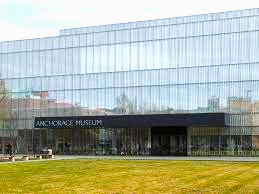For centuries, Dionysus has been a symbol to cling to for those who are oppressed. Those who are seen as less than and outside the social norms have been able to find solace in the worship of him. He was a protector of women, which back in Ancient Greece and Rome was practically unheard of. His worshipers were those who were looked down upon by society and he was someone they looked to for their release, for their safety. He completely wrecked the social norms of the time and has been credited with being the inspiration for groups of people rising against injustice. Now who else does that sound like?
To answer the question that the title of this article presents, no. No, he isn’t Jesus, however, there does seem to be a connection between the pair of them. I would like to say upfront, right here, that I intend no disrespect to Christianity and I mean no disrespect to paganism. I have immense respect for both religions and practices on their own and in no way do I mean to offend anyone or disrespect anyone. I’m just writing this because I find the ties between these two figures very interesting and I wanted to share them because I thought they were cool.
So let’s start here, what the two of them represent. Jesus, at least in Christianity, is meant to represent the love and acceptance that the religion is supposed to convey. Biblically, he’s shown to be loving and to accept those of all sorts of backgrounds but who is he seen around the most? Not the wealthy. Not those with good standings in society. No, he associated himself with people who were seen as lesser. People were looked down upon and mistreated by the systems that they were in. Prostitutes and women and tax collectors. The leopards, the blind, and the sickly. He welcomed them with open arms, he welcomed these people who the rest of society found disgusting and looked down upon.
But what does this have to do with Dionysus? Look at his followers. Dionysus was worshiped by mainly women and by the people that society found to be undesirable. He was seen as someone safe that these people could worship, and I’d go as far as to say that he was comfortable for these people. Women were wonderful to follow him, they even jumped at that opportunity because, with him, they were able to have that freedom that in regular society, they would not be afforded. He’s seen as a drunkard and nothing more but looking into his mythology, Dionysus was a liberator. He was looked to for protection by these groups that had been so wronged by the society that they lived in.
Now, let’s look at how that society has responded to these two figures. I think a good majority of us are aware of what happened to Jesus at the end of his life. See, the people around him, the Roman leaders and the Pharisees weren’t a fan of him or his teachings for a multitude of reasons but the ones to focus on the most here are his teachings of caring for others and instilling this idea of hope in those who looked to him for guidance. He was widely rejected by the powerful and those in charge because the things that he was teaching and the news he was spreading were so outside the norms of the day (among other things of course).
Dionysus was in a similar vein to this. He was also looked down upon by the people who were in power, these people who were in charge, and these people who upheld the norms of this society that they lived in. He wandered around the world for a while, sharing his creation of wine while simultaneously convincing these people that he was a legit god that deserved to be seen and respected as such. While Dionysus wasn’t nailed to the cross like Jesus was, he and his followers were often turned away and shunned by the everyday societies that they were trying to convert and convince of their practices and beliefs.
Let’s go beyond all that for a moment and delve into the holidays and traditions that the two are typically tied to. See, the bible claims that Jesus was born on December 25, Christmas day, but if you look into not only the biblical contexts but also the historical ones (Because Jesus was a real person and we can trace his familial and bloodline) you’d find that Jesus was more likely born sometime in the Spring, as research done by members of the Church of Jesus Christ of Latter-day Saints generally places the birth of Jesus at some point in early to mid-April. So why do we tie it to December when Jesus was born in April (Most likely)? Well, the answer to that is simple. See, after the crucifixion, when Christianity really started and blew up as a religion, the followers went around to specifically pagan religions (with the bible mentioning Hades and Diana by name) and integrated their religion into those practices. The Winter Solstice, celebrated in December, usually on the 25th during that period, is the day that Dionysus was recorded to be born. There was also the fact that this celebration was a fairly big one for Dionysus and his followers (along with Demeter, but she isn’t the focus), and in a way, it would make sense that this would be the holiday that Christianity would try to integrate into their religion.
I mean think of how the people viewed Dionysus. A drunkard, a man who would take traditionally feminine roles, disgraceful and lewd. Now I would hope that throughout this and the other pieces that I’ve written about Dionysus, you don’t believe that about him. He was certainly a lot more than that, but that’s not what other people believed. I don’t know for sure what was going on through the minds of Christians of the day, but thinking about it now, as someone who subscribes to that faith, I would only have to assume that they believed that this was the right thing to do. To purify this holiday of the ‘sinful practices’ that they were performing. I mean realistically, what they (pagans) were doing wasn’t awful, the celebrations of the Winter Solstice included things like decorating trees and lighting candles, and while that is a simplification, you’ll find that their practices are similar to that of modern-day Christianity’s Christmas.
Those are all the similarities between both Jesus and Dionysus in the most respectful way that I could. I’m not trying to discredit either of these figures in their respective religions, I simply wanted to point out that there are similarities between the pair of them, both in the people themselves, as well as the practices that surround them. Really I could have gone a little bit farther, but I don’t want to have to split this up into two parts, and a lot of these could just be me grasping at straws. I didn’t even bring up the whole wine thing because that would be a reach.



